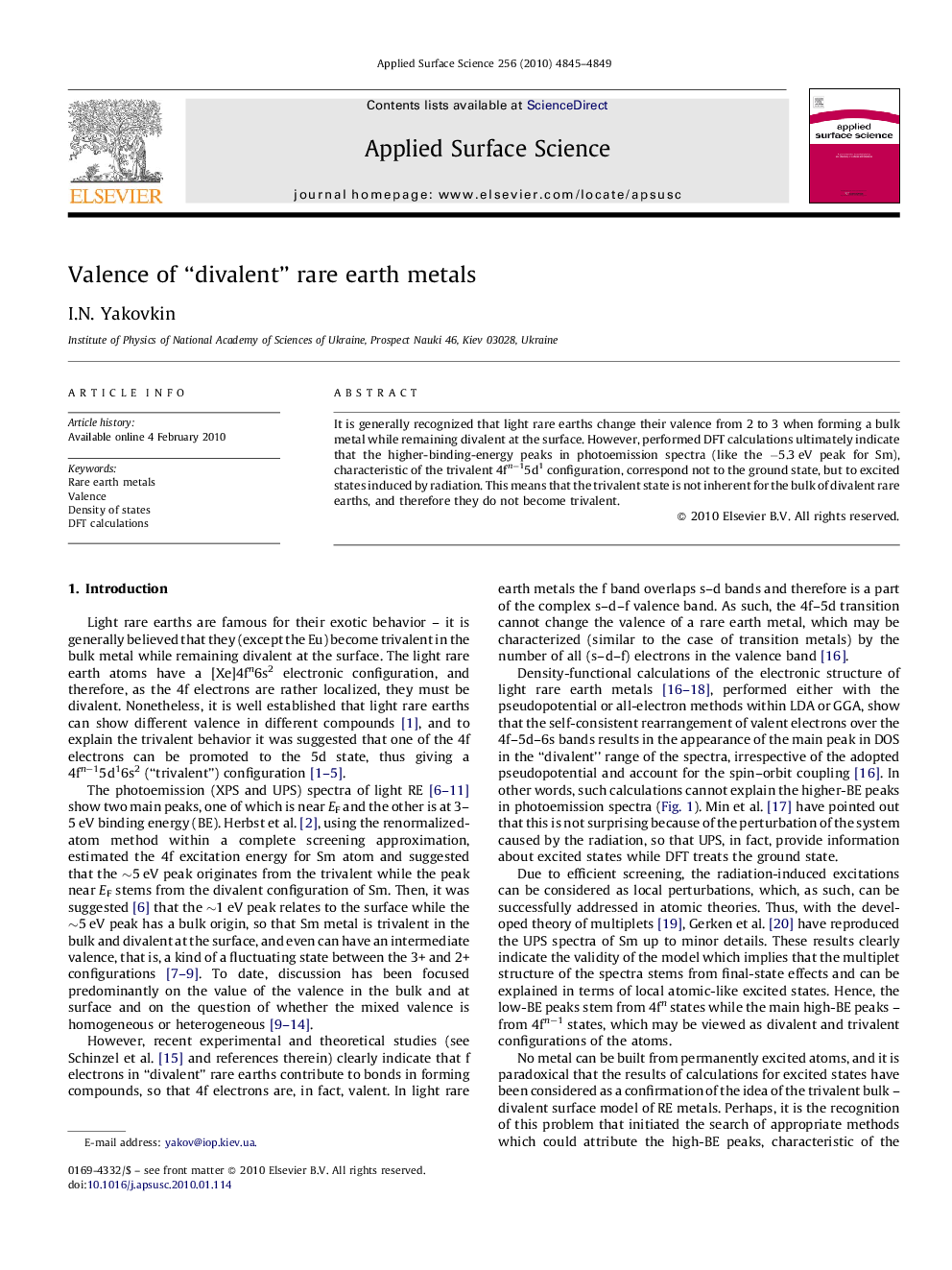| Article ID | Journal | Published Year | Pages | File Type |
|---|---|---|---|---|
| 5358203 | Applied Surface Science | 2010 | 5 Pages |
Abstract
It is generally recognized that light rare earths change their valence from 2 to 3 when forming a bulk metal while remaining divalent at the surface. However, performed DFT calculations ultimately indicate that the higher-binding-energy peaks in photoemission spectra (like the â5.3Â eV peak for Sm), characteristic of the trivalent 4fnâ15d1 configuration, correspond not to the ground state, but to excited states induced by radiation. This means that the trivalent state is not inherent for the bulk of divalent rare earths, and therefore they do not become trivalent.
Related Topics
Physical Sciences and Engineering
Chemistry
Physical and Theoretical Chemistry
Authors
I.N. Yakovkin,
